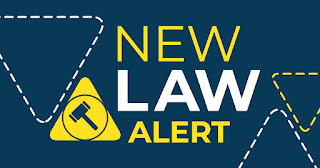To provide further incentive for people to get vaccinated, The New York State Department of Labor recently issued guidance permitting employees to use paid sick leave to recover from side effects of the COVID-19 vaccine. The New York State legislature previously passed a law entitling employees to paid leave to receive vaccinations.
New York State law requires employers with five or more employees (or net income of more than $1 million dollars) to provide 40 hours of annual paid sick leave to its employees. New York Labor Law Sec. 196-b permits employees to use sick leave "for mental or physical illness, injury, or health condition, regardless of whether it had been diagnosed or requires medical care at the time of the request for leave."
The DOL clarified that Section 196-b requires employers to "honor the employee's desire to use accrued sick leave for recovery of any side effects of the COVID-19 vaccination."















